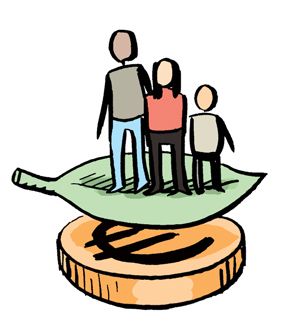Integrating sustainable development into economic policy

A vibrant economy is most important if Ireland is to produce a fairer future for all. To secure such a future requires us to learn from our mistakes in the past. Solid policies are required that secure the best future for all. As we begin to rebuild our society and economy post Covid-19, the new Government must make policy coherence a cornerstone of our economy. Policy Coherence is defined by the OECD as the systematic promotion of mutually reinforcing policy actions across government departments and agencies creating synergies towards achieving the agreed objectives. In plain language, it means making sure that the goals of one policy, or set of policies, does not conflict with another.
A vibrant, well run and sustainable economy allows for integrated, long-term governance and planning, provides sufficient levels of resourcing for services and infrastructure on an on-going basis and serves as a foundation for a sustainable and cohesive society. In order to achieve this we need policy coherence. We do not have a strong track record on policy coherence. There appears to be a strong degree of policy incoherence at national level, with government pursuing policies such as Food Harvest 2020 and Food Wise 2025, despite the fact that these will each result in increased emissions that will inhibit the achievement of our climate-related goals. The increased emissions from both agriculture and transport mean that Ireland will be subject to fines for not meeting our European targets. Energy policy is also affected by policy incoherence. There is a mismatch between pursuing a policy of data centre expansion, and the pressure that this will put on energy resources whilst simultaneously trying to reduce our energy emissions.
In addition to the immediate financial costs of missing our climate targets, the potential social, economic and environmental impacts of climate change are immense, and their cost must also be taken into account.
The new Government could avoid these difficulties by integrating a sustainable development framework into economic policy. This framework would ensure policies are socially, economically and environmentally sustainable, and that different policies do not hinder or undermine each other. Sustainable development is defined as ‘development which meets the needs of the present, without compromising the ability of future generations to meet their needs’. It encompasses three pillars; environment, society and economy. The United Nations defines sustainable economic growth as creating the conditions that allow people to have quality jobs that stimulate the economy while not harming the environment[1]. Sustainable economic growth is vital if future generations are to enjoy the fruits of a vibrant economy and society. While growth and economic competitiveness are important, they should be considered in the context of sustainability, using a framework for sustainable development which gives equal consideration to the environmental, social and economic pillars.
A sustainable development framework integrates these three pillars in a balanced manner with consideration for the needs of future generations. Maintaining this balance is crucial to the long-term development of a sustainable resource-efficient future for Ireland.
In addition to integrating a sustainable development framework into economic policy the new Government should place the SDGs at the centre of policy making. While the current commitment to green budgeting and the publication of all Exchequer climate related expenditure is a very welcome first step by incorporating climate change and the SDGs into the budget process, much more is required.
The new Government should, as a matter of priority, outline a five-year plan containing the following:
- A plan to support the CSO to develop Ireland’s System of Environmental-Economic Accounts (SEEA) and how the SEEA will be incorporated into the National Development Plan;
- All proposed environmental taxation changes over the period;
- Details of the energy efficiency and renewable energy projects that this revenue will fund over the period to support our low carbon transition;
- A circular economy strategy for Ireland;
- A mitigation and transition programme.
[1]https://www.un.org/sustainabledevelopment/economic-growth/